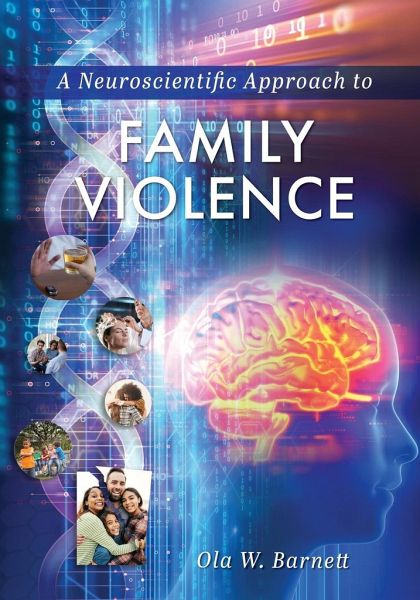
A Neuroscientific Approach to Family Violence
Versandkostenfrei!
Versandfertig in 1-2 Wochen
46,99 €
inkl. MwSt.

PAYBACK Punkte
23 °P sammeln!
A Neuroscientific Approach to Family Violence helps students, practitioners, and helping professionals understand the contributions of genetics to the behaviors of maltreated and maltreating persons. The book highlights new research findings about family violence across the lifespan accompanied by simplified information about their genetic foundations. The unobtrusive method of referencing the research enhances the accessibility of the content while maintaining customary attributions. This unique presentation provides readers with a biosocial model for better understanding family violence and ...
A Neuroscientific Approach to Family Violence helps students, practitioners, and helping professionals understand the contributions of genetics to the behaviors of maltreated and maltreating persons. The book highlights new research findings about family violence across the lifespan accompanied by simplified information about their genetic foundations. The unobtrusive method of referencing the research enhances the accessibility of the content while maintaining customary attributions. This unique presentation provides readers with a biosocial model for better understanding family violence and its implications. Readers learn how tests of boys aged two to five can predict with 80% accuracy whether the boy will be convicted of a crime by age eighteen. Readers discover how trauma experiences from assaults can change the structure and functioning of the brain. Dedicated chapters reveal that certain trauma-focused treatments are measurable within the brain, maltreatment of children is the greatest preventable factor for adult mental illness, and dating violence, bullying, sexual assault, and adult intimate partner violence all have genetic bases. Throughout, prevention and treatment strategies are provided that correspond with different stages of the lifespan. Illuminating case histories stimulate critical thinking and connect research and theory with real-life examples. A Neuroscientific Approach to Family Violence provides readers with a wealth of information about the relationship between family violence and neurobiology. The content prepares students for effective practice and also provides experts in the field with fresh research in the discipline.














